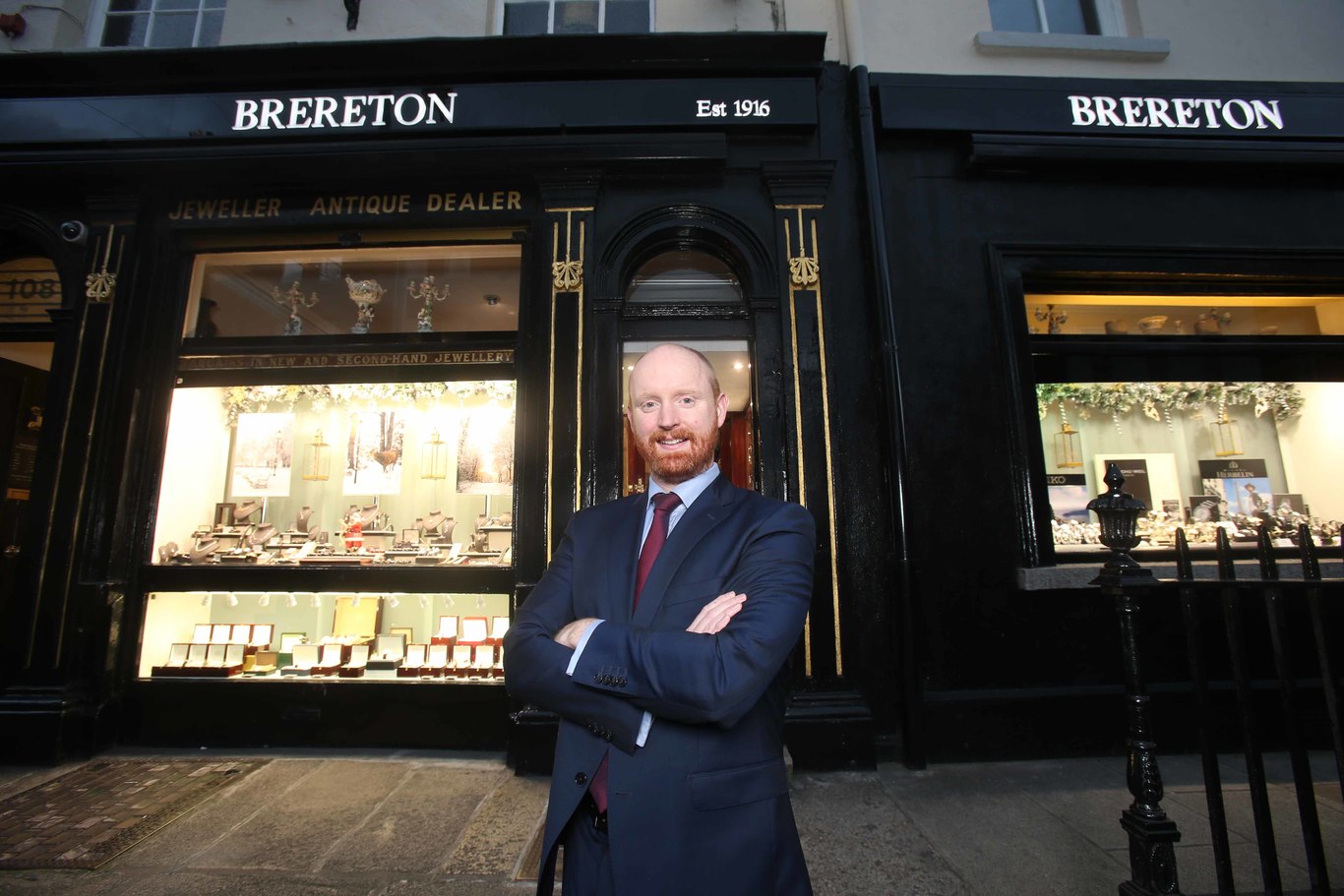Meet the Dublin jeweller who travels the world in search of flawless diamonds
As part of our How My Business Works series, we profile John Brereton jewellers.
PAUL BRERETON’S JOB sounds like one of the most exciting in the world. The Dublin native spends much of the year jetting across the globe, looking for the best rare gems and diamonds.
When he finds some he likes, he either contracts a local craftsman to forge some jewellery, or flies the minerals back to Ireland where he and his staff make diamond rings.
Despite the glamorous-sounding nature of the job, Brereton, 39, makes an effort to talk it down as much as possible.
“You go to some of the most amazing cities in the world, but you don’t get to see them,” he tells Fora. “It isn’t a social experience, you go there to do work and then you come home. You mostly spend your time at trade shows and visiting people at hotels.”
While some would view that as a missed opportunity, Brereton is happy enough travelling across Ireland instead.
“Often, when you travel around the country and people hear your surname, they will say something like, ‘my grandmother bought her ring from you’,” he said.
“People have been buying from us for generations, and it is very powerful when you talk to people like that, it’s very humbling.”
Brereton worked in Bank of Ireland for a few months before getting a position with investment firm Susquehanna.
The position was a good one and unusual at the time, with Brereton taking responsibility for actual trading – a job that a 24-year-old would rarely be able to get in Dublin.
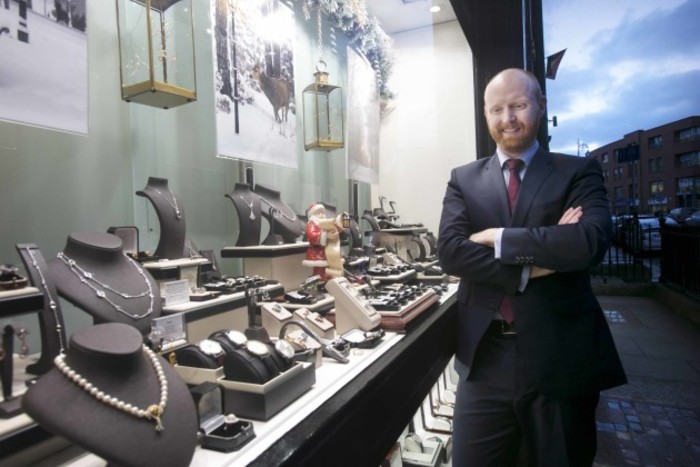 John Brereton jewellers general manager Paul Brereton
John Brereton jewellers general manager Paul Brereton
However, after spending a few years there, Brereton decided to leave for the shop that bears his family name, John Brereton jewellers. He now runs the firm’s three stores with his father and uncle and serves as the business’ general manager.
“My brother and sister hadn’t shown much interest (in joining the shop),” he says. “A lot of people whose families ran businesses in the 70s and 80s, the children didn’t want to work as hard as their parents, so they would go – and often end up working as hard at something different.
“But it is a good business. It had taken three generations to build up and I didn’t want to see all that hard work disappear.”
Brereton followed in the family footsteps, graduating as a gemologist in 2006, and is now looking to modernise the family business.
What do you do and how long have you done it for?
Brereton’s is one of the city’s oldest jewellers, starting life more than 100 years ago. The company’s oldest store on Capel Street has actually been around for longer than that, dating back to 1855.
“The store was running as a pawn brokers before we bought it. When we did, the name of the person with the licence had to be above the door so we bought it in 1916 and it became Brereton’s,” Paul Brereton says.
The family focused on running the Capel Street store for years, and the business stayed at one outlet until 1976, when it opened a second shop on Chatham Street.
A decade later it added a third, starting a store opposite the General Post Office on O’Connell Street, the rebel headquarters during the rising in the year that the first store opened.
The company next decided to expand in 2010, closing its store on Chatham and snapping up a prime spot on Dublin’s central shopping boulevard for €5 million during some of the worst days of country’s financial meltdown.
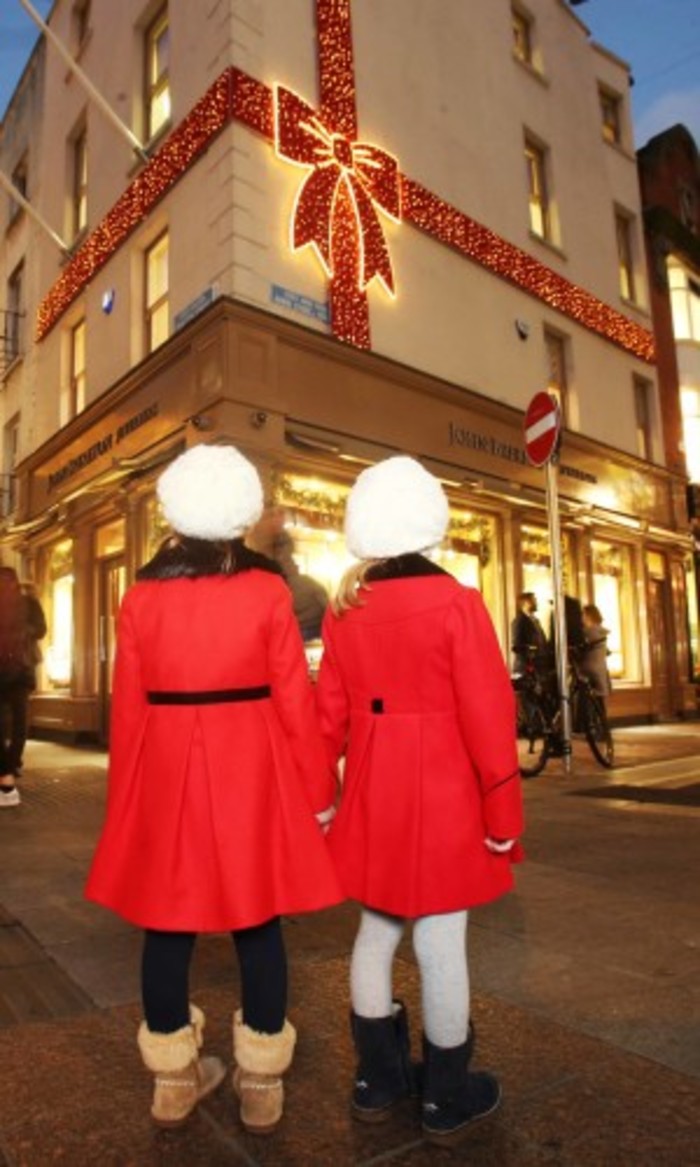 Brereton's on Grafton Street
Brereton's on Grafton Street
“It was not a time when people were buying commercial property, but it was a corner site on Grafton Street, where there were only three owner-occupiers left. When the opportunity presented itself, it was a no-brainer,” Brereton says.
The business is now trading well, reporting a profit of about half a million euro between its three stores in 2015, and has just relaunched its website to make a push into online sales.
What are your costs and how do you make money?
Brereton’s is one of Dublin’s better-known jewellers, selling a range of items including watches, bracelets, necklaces and diamond rings.
“I travel all over the world trying to find the best-quality stones and jewels; I went to three different continents to find the best-quality stones at the right price,” Brereton says.
He adds that the company looks to avoid conflict diamonds, a term that refers to stones mined in war zones and used to fund conflicts, traditionally associated with African countries like the Ivory Coast and Sierra Leone.
Brereton says that the firm only uses diamonds sourced through the Kimberley Process, an international initiative to try and cut down on blood diamonds, although some critics have said that conflict stones do manage to slip through.
“With the Kimberley Process, there is a setup so that stones have a certificate of where they came from, and that stays with them so that if there is some of a change in where they came from, they can’t get into the supply chain,” Brereton says.
Unsurprisingly, the diamonds are “far and away” the company’s biggest spend, but the firm also spends a decent chunk of money on its staff. Brereton’s employs over 30 people and has a workshop in each of its stores.
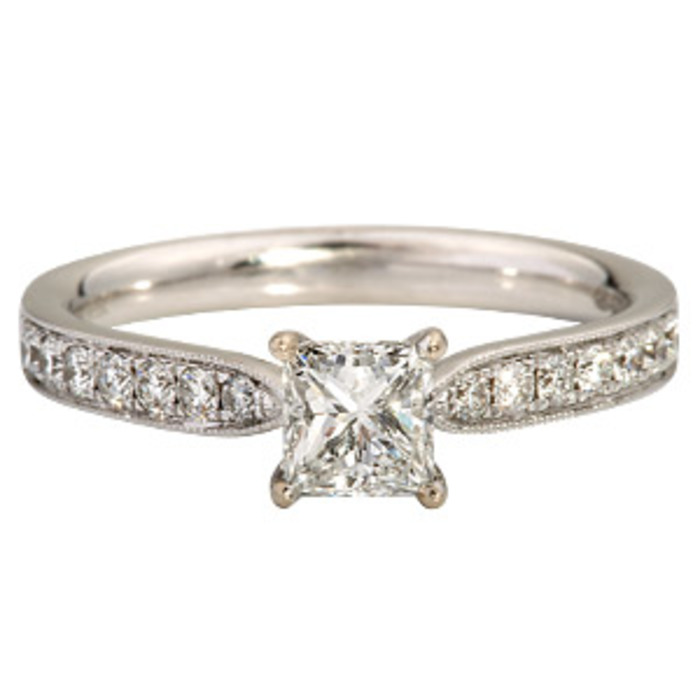 One of Brereton's diamond rings
One of Brereton's diamond rings
“90% of the diamond rings we sell are made by hand in our shops,” he says. “With other jewellery it would be about the reverse, about 10% is made by us.
“The four goldsmiths that we have about 30 to 40 years’ experience each, between them alone we would have about 150 years experience and they can do unbelievable things.”
What is your market?
Brereton says that the firm sells to “the entire family”, but the family will likely have to be at least a little well off. You won’t find much priced under €1,000 on a quick flick through the company’s catalogue – and many of its rings are priced at many multiples of that.
Brereton acknowledges that the image of jewellery shops as haunts of the wealthy can be a hard one to shake but added that many customers are not looking to drop three months’ salary in one go.
“Someone could spend €8,000 on a piece and then you could have a piece for €80. (Repeat business) is definitely important, we try to structure it so that someone will go in and buy something small and as they progress will buy a ring from us,” he says.
While the company has no immediate plans of expanding outside the capital, Brereton is looking to tap into a new market by revamping the business’s online offering in what sounds like a fairly torturous process.
“People have high expectations of what a site should deliver for image quality,” he says.
“Because we are selling our own stuff, not other brands, we have to photograph each piece in four different directions, edit it and upload it. We have launched with 500 items on the site and we have 15,000 to get up there, so it’s a daunting task,” he says.
What is the competition?
Some of the country’s most famous jewellers, such as Appleby and Weirs and Sons, are just a hop and a skip away on Grafton Street. Brereton’s also has to try and mix it with online-only jewel sellers, who don’t have the same overheads as their high-street rivals.
Brereton is coy on how much it costs for him to buy the stones and what the company’s markup and turnover are, although he insists that margins aren’t as high as some people think.
“There is a preconceived idea that margins are high, but not any more because of selling over the internet. We have to be competitive with our pricing,” he says.
“If we can be within 5% of online retailers then we are doing a good job.”
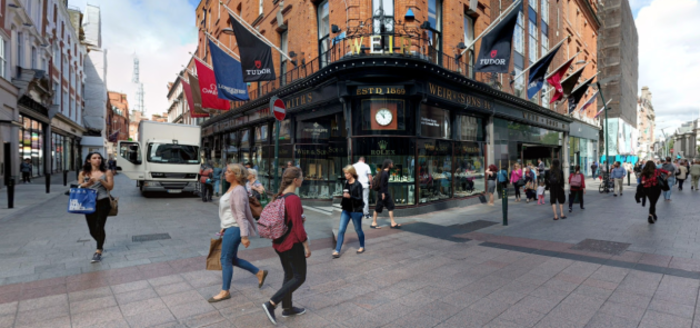 Weir & Sons
Weir & Sons
Brereton acknowledges that the company will have a tough time matching the price of an online retailer or a company that is supplied by a multinational, so he says that the firm needs to emphasise its heritage and expertise.
“We try to get the cheapest rings possible, but you have to justify the price. With a ring that you buy online, what if you want it resized? People buy it and then don’t have a comeback if they have an issue. Here you can walk in and talk to someone.”
What is your vision?
Brereton says that the new website is “everything” for the company’s future plans at the moment.
The company has set a goal of online sales of €200,000 in the 12 months after the revamp, rising to €500,000 in year two. It’s a figure that Brereton expects to keep expanding in the future as people continue to move towards shopping online.
Asked if he thinks online sales will outstrip sales in-store at Brereton’s in the coming years he says: “Definitely, especially the way we are positioning ourselves. We are looking to be ready for the next stage in retail.”
Brereton has no plans to upset the apple cart and is determined to carry on the work of his family, adding that you “learn to love” the industry.
“I studied gemology; I can take what I learned and apply it the next day which is very interesting,” he says.
“I have to keep pushing the business to be as competitive as possible. I don’t to be the one that messes up after four generations.”
This article is part of our weekly series examining the nuts and bolts of businesses. If you would like to see your company featured please email news@fora.ie.
